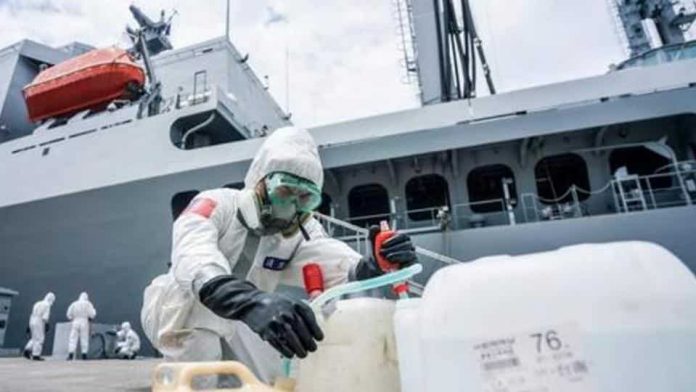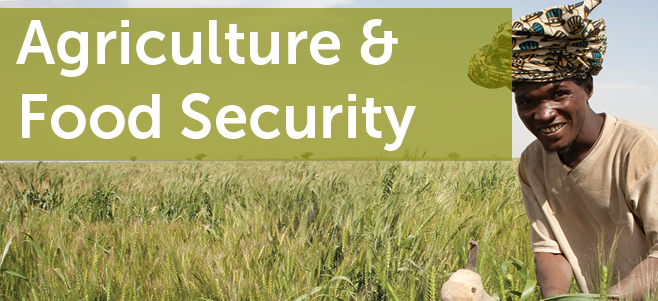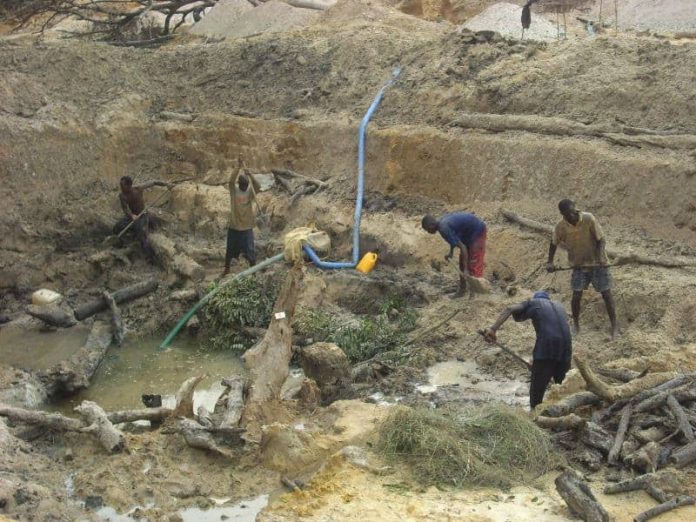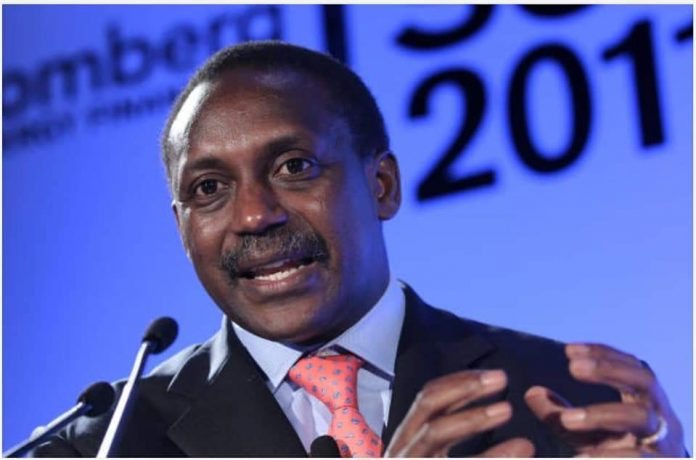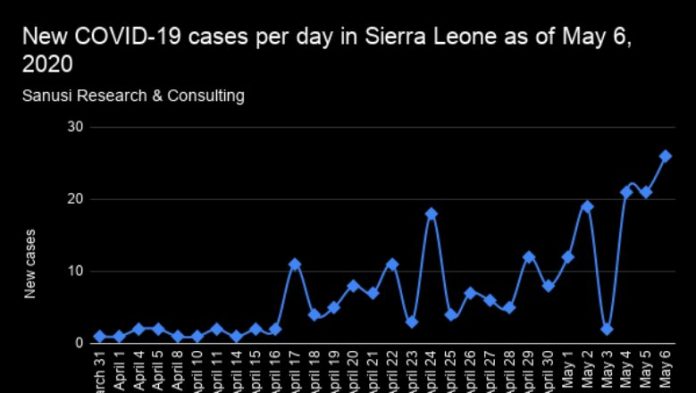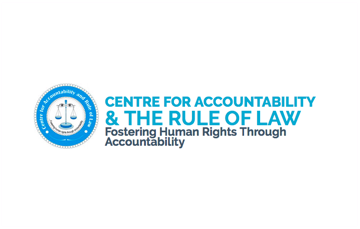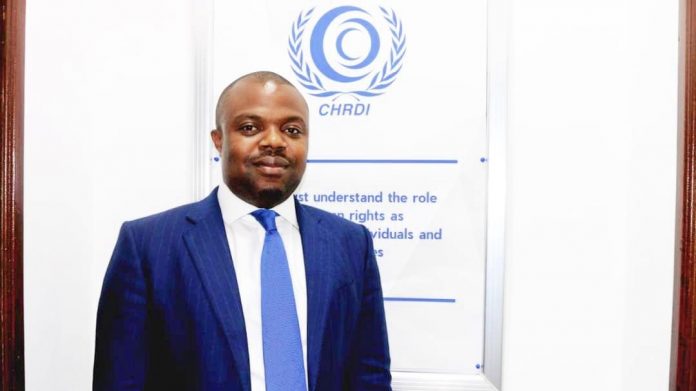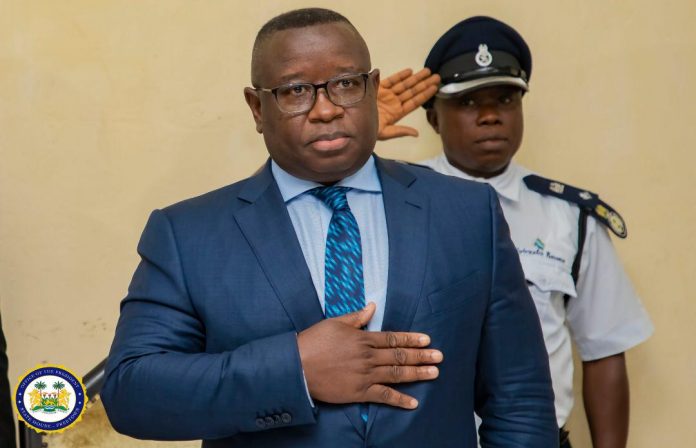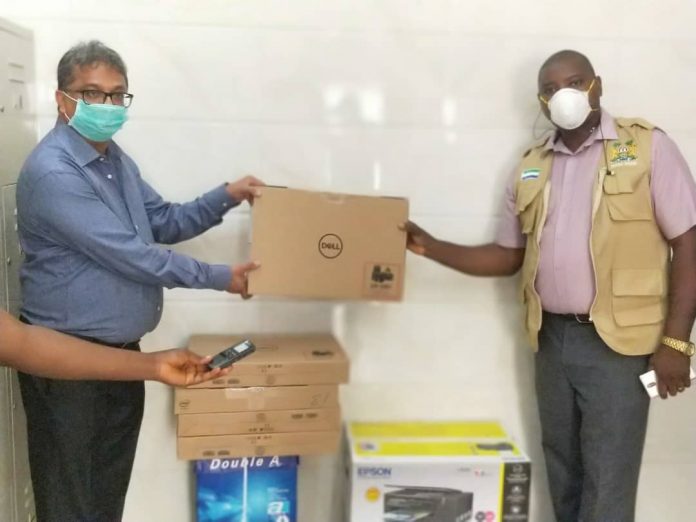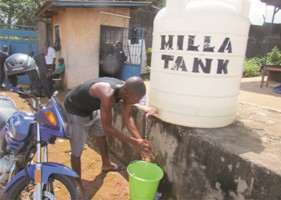By Amin Kef Sesay
During a local television programme that was aired on the 7th May 2020, Dr Kandeh Yumkella, the Parliamentary Leader of the National Grand Coalition Party and a Member of Parliament of the Kambia district, spoke about the rapidly deteriorating disorder in the country, amid rising political tension, Police arrest and detention without charge of opposition politicians perceived as dissidents by the ruling SLPP party.
Yumkella’s appearance comes as many in Sierra Leone are expressing disappointment at President Bio’s deafening silence and indifference, following the Pademba Road Prison disturbance which saw the alleged shooting of dozens of unarmed prisoners by Presidential Guards, leaving eleven dead and several seriously injured.
The rioting in Lunsar in the north of the country and the increasing rate of transmission of the coronavirus, especially in the capital Freetown, have raised eyebrows, with many now calling for President Bio to come out and show strong leadership by addressing the people of Sierra Leone.
Speaking on AYV TV, Dr. Yumkella called on President Bio to reach out to the opposition political parties to find new partnership framework that will bring all parties together to work towards national cohesion, promote peaceful co-existence, unify the nation, as well as focus on combating the coronavirus.
Various reports have suggested that President Bio was going to address the people of Sierra Leone after ending his fourteen days quarantine and to review the success of the three days lockdown which ended last Sunday. President Bio was also expected to come out and clearly map out where the country is heading, as political tension mounts. But there was no broadcast from the President.
The President’s continuing silence and indifference, in the face of a rapidly deteriorating security and breakdown in law and order is a serious cause for concern.
In another development, Dr. Dennis Bright, Chairman and Leader of the National Grand Coalition (NGC) party recently issued a statement about the increasing political instability and rising tension in Sierra Leone, following the shooting dead of several prisoners in Freetown by presidential guards, as well as the arrest and detention of opposition politician Dr Blyden.
He said: “The National Grand Coalition (NGC) is very concerned about recent events in the country, particularly the violent incident that occurred on 29th April, 2020 at the Pademba Road maximum security Correctional Centre and the accusations and counter-accusations that have been levelled at each other by the All People’s Congress (APC) and the Sierra Leone People’s Party (SLPP).
Dr.Bright maintained that the event and the accusations that are being made are escalating tensions in the country adding how people claiming to be defending the interests of these two parties are currently using the social media to fan the flames of hate and even sound the drums of another civil war.
He said no true Sierra Leonean would want to see the men, women and children of this country go through the pains, horrors and brutality of a civil war, AGAIN!
“As political parties, whether in Government or Opposition, we all have a sacred duty to ensure that our people live in peace and not in a permanent state of fear and insecurity. And certainly, no political party should be proud to drag their people back into bloodshed and death,” the seasoned politician averred.
According to him, that is why the NGC is appealing to the leadership of the APC and the SLPP to immediately pull back from their current confrontational postures in order to de-escalate the rising tensions in the country.
He stated , however, that the NGC is also calling for a FULL and IMPARTIAL investigation into the incident at the Pademba Road Correctional Centre which resulted in such a significant loss of life.
“Currently, the social media is awash with theories, claims, threats, testimonies and so-called eye witness reports that have plunged the entire nation into total confusion as to what really happened, why, who did what and what next.
The bereaved parents, relatives and the nation as a whole deserve to know the truth so that justice will be done. Our heartfelt condolences go to the bereaved and may the souls of those who died rest in peace,” he lamented and expressed sympathy.
He said at this time what is most important in our country is unity of purpose in our fight against the real common enemy: the Coronavirus or COVID-19 saying the disease has the potential to kill people, destroy our economy and turn the country into a wasteland but we should not make that happen.
Dr.Bright said our primary focus at this time should be to work together to contain the spread of the virus, protect individuals and communities and save the nation underscoring how in that regard the NGC is doing its bit.
“We all must agree that our people have suffered long enough. So now is the right time for political parties to show that they care for the people by joining hands to save them from the coronavirus, not tear the nation apart with interparty conflicts,” he admonished.
The chairman said the NGC is willing and ready to help in any way it can and will endeavour to engage the leadership of both the APC and the SLPP in the search for a new path of cooperation in the interest of the nation.

